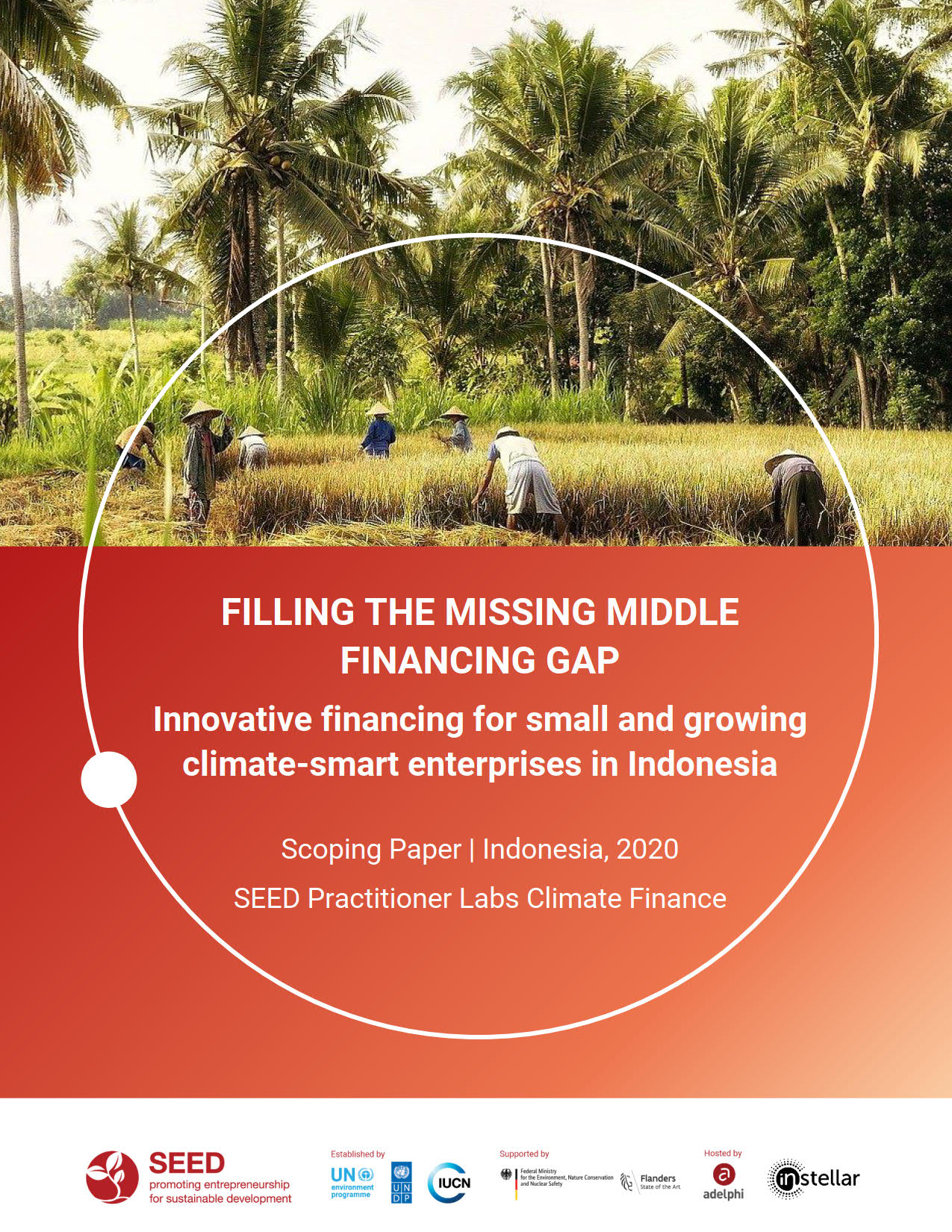Filling the Missing Middle Financing Gap | Scoping Paper, Indonesia 2020

This scoping paper provides the basis for the implementation of the collaborative, multi-step process of the SEED Practitioner Labs Climate Finance in Indonesia in 2020. Indonesia’s richness in biodiversity and vibrant landscape of small- and medium-sized enterprises (SMEs) present a significant opportunity for the country to meet its development objectives while reducing its climate impacts and improving climate resilience across sectors. In particular, climate-smart SMEs – offering products and services for climate change adaptation and/or mitigation – are well positioned to absorb and scale the environmental, social and economic impacts of global climate finance flows in line with Indonesia’s climate action objectives.
From challenges to climate finance solutions
The purpose of the multi-step SEED Practitioner Labs Climate Finance – successfully implemented in India, Thailand, Uganda, Ghana and South Africa since 2018 – is to facilitate a hands-on process that results in targeted climate finance solutions, which finance the growth of SMEs that are actively delivering climate change adaptation and mitigation solutions across their value chains.
Based on the major climate-smart SME financing and climate finance challenges in Indonesia, key partners engaged during the 2020 SEED Practitioner Labs cycle in Indonesia aim to:
- Leverage blockchain to generate and meet consumer-demand for ecosystem services markets (hosted by Lestari Capital)
- Stimulate markets for carbon offsets and certification via P2P SME lending platform (hosted by Mekar)
- Build green-climate finance strategies and mobilise climate finance flows for commercial lending (hosted by PUPUK)
- Finance small island coastal communities’ renewable energy transition (hosted by UNDP)
In identifying opportunities for innovation, this scoping paper will (1) set the scene for climate action in Indonesia; (2) identify the role of climate-smart SMEs for achieving climate change mitigation and adaptation objectives as well as outline the major financing challenges hindering these enterprises from achieving impacts at scale; and, (3) review the status of green-climate finance and SME finance, and the role of various private and public sector actors in delivering tailored financial solutions to Indonesia’s most pressing climate challenges. The scoping paper will close with (4) a brief introduction to the major challenges (and opportunities) to developing climate finance solutions for SMEs during the SEED Practitioner Labs Climate Finance process in Indonesia in 2020.
